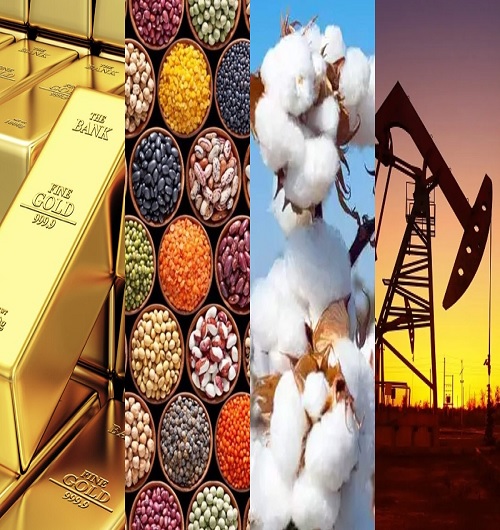Multi Commodity Exchange (MCX) is the largest commodity trading market in India. It allows trades on Bullion like Gold, Energy like Natural Gas, Agricultural Products like Castor Seeds and Metals.
Commodity trading is a common term in investment parlance. Apart from stocks, various commodities are traded in markets, investing in which can help you diversify your portfolio and augment gains. If invested with prudence, commodities can provide good returns in the long run thanks to their changing prices over time. A commodity is a group of goods that are important in everyday life. Commodity can be in the form of food, energy, metals etc. Commodities can be moved from one place to another physically.
Even today in villages, farmers exchange commodities among themselves. In the organized commodity trading world, things are a little different. Commodity trading is regaining its importance among investors. This trading happens on a commodities exchange, where various commodities and their derivatives products are bought/sold. The most commonly traded items are agricultural products and contracts based on them. But, increasing non-agro commodities are also being traded like diamonds, steel, energy items etc.
Here are the list of major commodity exchanges in India.
Multi Commodity Exchange (MCX) is the largest commodity trading market in India. It allows trades on Bullion like Gold, Energy like Natural Gas, Agricultural Products like Castor Seeds and Metals.
Natural Commodity & Derivatives Exchange Limited (NCDEX) is a deemed stock exchange regulated by SEBI. It allows trading in Cereal & Pulses, Fibres, Spices, Oil & Oil Seeds, etc.
Indian Commodity Exchange Limited (ICEX) is a SEBI regulated online Commodity Derivative Exchange. It allows trading in Agro and Non-Agro Products in a nationwide trading platform.
National Multi Commodity Exchange (NMCX) regulated under the guidelines of SEBO. It allows trading in Agro Commodities such as Cardamom, Cotton, Crude Oil etc.
The commodity markets in India are quite significant for the country’s economy, investors, and people relying on commodities for their living. Some of the most important features of the commodity markets are:

Trading in Commodity can be in different ways. Some of the ways of trading are discussed below:-
It is the most common way to invest in commodities. For example, you can directly purchase items like gold and silver in the form of coins and jewellery.
This is another way to trade in commodities. For instance, if you wish to trade in energy, you can buy it. The stock price will closely follow the price of energy.
There are many ETFs and mutual funds based on commodities and their is no purity or storage related issue as held in electronical format.
Commodity trading can be beneficial if you get the basics right and accurately estimate your risk appetite. Have a proper plan and execute it to derive maximum value from commodity trading.

Commodity Market carries along with it some advantages which are discussed below:-
Commodity Market carries along with it some disadvantages which are discussed below:-
